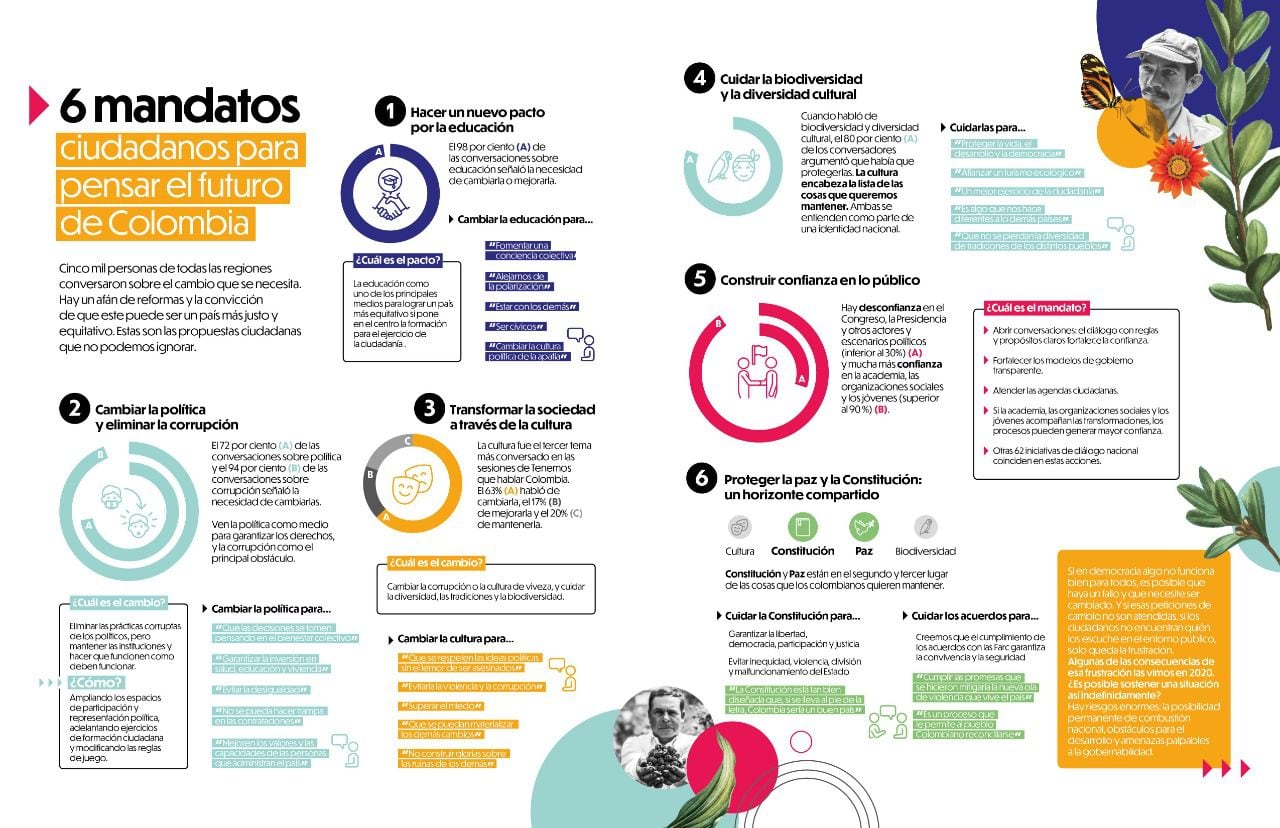
From the Virgilio Barco Library in Bogotá and with a virtual presence from 5 other cities in the country, students, teachers, businessmen, politicians and other civil society actors were present in the delivery of the results of the We Need to Talk Colombia movement.
The project was carried out by the Universidad de los Andes, the School of Administration, Finance and Technological Institute (Eafit), the National University, the Industrial University of Santander (UIS), the Universidad del Norte and the Universidad del Valle; in partnership with the Sura Group and the Ideas for Peace Foundation (FIP). For more than a year they talked to 5,000 people in order to find the solution to the country's current economic, social, educational and cultural problems.
Six points were identified, which should not be ignored, in order to build a fairer country. These will form the roadmap for the voices of 5000 Colombians to have an impact on public policies.
The first is that a new pact must be made for education. They point out that we need to reform the system and improve it, “fostering a collective awareness, changing the political culture of apathy and moving away from polarization.”
Politics must be a means of guaranteeing rights. Corruption is the main obstacle in this second term. They point out that they must:
Culture is the third point, which must be transformed in order to change society. “We must change corruption or the culture of vividness, and take care of diversity, traditions and biodiversity,” they emphasized that political ideas must be respected without the fear of being killed.
Some of the strategies to develop this, the fourth mandate, is to strengthen eco-tourism and avoid the loss of diversity and traditions of the different peoples.
The fifth point points out that there is a distrust in the public sphere. Congress, the presidency and other political actors will have to open talks, strengthen models of transparent government, attend to citizen agendas, among other actions that generate confidence in this regard.
The sixth point, which has a general consensus, says that peace and the constitution must be protected. This will guarantee freedom, democracy and justice. In addition, it will prevent inequity, violence and malfunctioning of the State. It also points out that the peace accords signed with the FARC must be taken care of; this will ensure coexistence and security.

Project director and manager Santiago Silva highlighted: “Conversation builds trust, sitting down and talking with different people in controlled scenarios helps build trust. Colombia faces a problem of mistrust due to historical abandonments that have undermined trust.”
He also stressed the importance of children's participation in this dialogue. He said that, unlike adults, they talked about environmental aspects. “Clearly if we imagine this in future perspective, children are proposing something to us, a change.”
KEEP READING:
Últimas Noticias
Debanhi Escobar: they secured the motel where she was found lifeless in a cistern

The oldest person in the world died at the age of 119

Macabre find in CDMX: they left a body bagged and tied in a taxi
The eagles of America will face Manchester City in a duel of legends. Here are the details

Why is it good to bring dogs out to know the world when they are puppies




